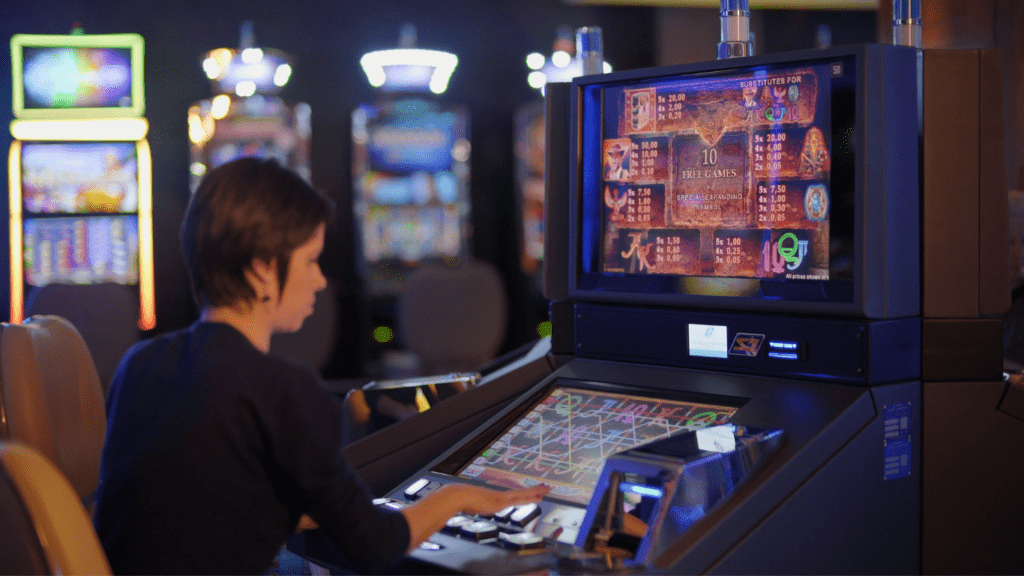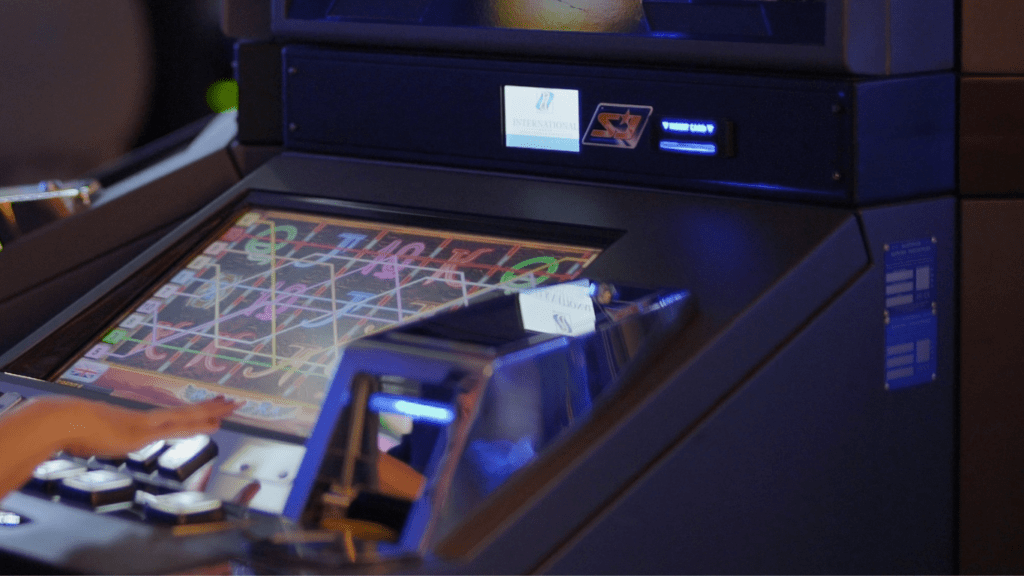Historical Origins of Slot Machines
Slot machines have a long, fascinating history, evolving significantly over the decades. Starting from simple mechanical devices, they’ve become sophisticated digital interfaces profoundly enhancing the gaming experience.
The Birth of Mechanical Slot Machines
In 1891, the first mechanical slot machine emerged. Created by Sittman and Pitt in Brooklyn, New York, this device used five drums with cards and cost a nickel to play.
It wasn’t standardized yet but was popular in bars. Later, Charles Fey invented the Liberty Bell in 1895 in San Francisco. This new machine had three spinning reels with five symbols: diamonds, hearts, spades, horseshoes, and the Liberty Bell.
Players could win monetary prizes if the reels aligned correctly, which led to its immense popularity.
The Popularity of Fruit Machines
By the early 1900s, a new type of slot machine known as fruit machines gained popularity. Manufacturers used fruit symbols like cherries, lemons, and plums to represent winnings.
These machines often dispensed fruit-flavored gum or candy as rewards instead of money due to anti-gambling laws. In 1907, Herbert Mills introduced a modified version of the Liberty Bell called the Operator Bell.
This machine featured the classic fruit symbols along with the iconic BAR symbol, marking a significant shift towards a more standardized slot gaming experience.
Technological Advancements in Slot Machines

Slot machines have experienced significant technological advancements, transforming from mechanical devices into cutting-edge digital platforms.
The Transition to Electromechanical Slots
Electromechanical slots marked a pivotal shift in the 1960s. Bally’s “Money Honey” in 1963 was the first to use electric components, allowing for automated payouts up to 500 coins.
This innovation increased game speed and reliability. Mechanical levers gave way to push buttons, merging traditional gameplay with newfound efficiency.
This transition paved the way for future digital enhancements, establishing a foundation for the modern gaming industry.
Emergence of Video Slot Machines
- Video slot machines revolutionized the gaming experience in the 1970s.
- Fortune Coin Co. launched the first video slot in 1976 using a modified Sony TV.
- This leap allowed diverse themes, improved graphics, and advanced bonus rounds to enhance player engagement.
- Random number generators (RNGs) replaced mechanical reels, providing fair outcomes and diverse gameplay options.
- Video slots’ success led to explosive growth, making them a staple in casinos worldwide.
These advancements showcase the rapid evolution of slot machines, setting the stage for today’s digital gaming innovations.
Modern Digital Slot Machines
Modern digital slot machines have transformed the gaming landscape with advanced software and captivating themes. These innovations offer diverse experiences and enhanced interactivity.
Software and Random Number Generators
Digital slot machines rely on sophisticated software for their operations. Random Number Generators (RNGs) are crucial, ensuring fairness and unpredictability in each spin.
RNGs continuously generate numbers, independent of previous outcomes. This technology ensures every player has an equal chance of winning.
Software developers, such as:
- Microgaming
- Playtech
create these algorithms while adhering to strict regulations and standards.
Interactive and Themed Slot Games
Today’s slot machines often feature interactive elements and engaging themes. Players encounter diverse themes like ancient Egypt, fantasy, and popular movies.
Interactive features include bonus rounds, mini-games, and free spins. These elements increase player engagement and make each game unique.
Companies like NetEnt and IGT lead the market in developing these captivating themed slots. Their creations draw players into immersive experiences, keeping the gaming industry vibrant and competitive.
The Impact of Digital Technology on Slot Gaming
Digital technology has transformed slot gaming, introducing new elements that heighten the player’s experience and resulting in substantial regulatory changes.
Enhanced Gaming Experience
Digital advancements have redefined slot gaming. Interactive elements, like bonus rounds and mini-games, create immersive experiences. Advanced graphics and sound effects enhance gameplay.
Players encounter elaborate themes and storylines. For example, games like NetEnt’s “Starburst” and Microgaming’s “Thunderstruck II” captivate users with compelling visual and audio components.
Touchscreen interfaces and mobile compatibility allow access to slots on smartphones and tablets, making gaming more convenient.
Changes in Gaming Laws and Regulations
Digital slot machines prompted regulatory updates. Authorities began focusing on software fairness and integrity. Random Number Generators (RNGs) are now mandatory to ensure unbiased outcomes.
Compliance standards include regular audits and certification by independent testing agencies, such as eCOGRA and GLI, guaranteeing fair play.
Online platforms follow strict age verification and responsible gaming protocols to protect players. Digital advancements have driven global regulatory harmonization, making gaming safer and fairer.



